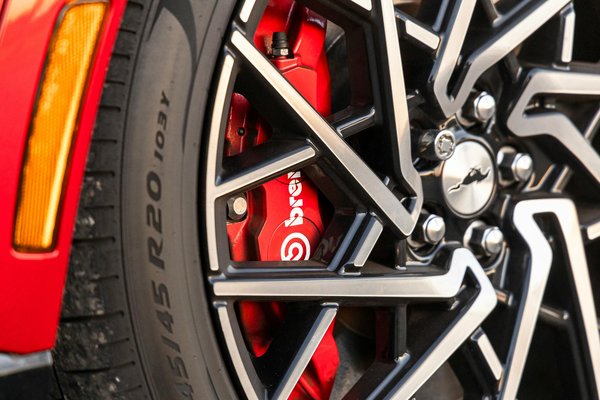
Where Every Journey Becomes a Story
Fuelfables brings you comprehensive guides, breaking news, and expert insights from the world of cars and motorcycles. Explore in-depth articles covering everything from maintenance tips to the latest industry developments, all crafted for passionate drivers and riders.
Explore by Category
Browse through curated content tailored to your interests

Your Trusted Source for Vehicle Knowledge
Fuelfables is dedicated to delivering high-quality automotive content that educates, informs, and inspires. From beginner guides to advanced technical analyses, we cover the full spectrum of vehicle topics.
- Daily news updates from automotive industry events worldwide
- Comprehensive safety guides and crash test analyses
- Detailed product reviews and comparison features
- Expert maintenance tips and troubleshooting resources
Latest articles
Our recent publications

Key considerations for choosing car anti-theft devices in urban uk environments
Urban vehicle theft in the UK remains a pressing issue, affecting both vehicle owners and the broader community. Recent UK crime statistics reveal that vehicle theft is more preval...

Ultimate guide to car exterior detailing: essential strategies for achieving concours d"elegance success in the uk

Ultimate guide to prolonging your hybrid car battery life in the uk: proven tips for longevity

Perfecting chain and sprocket alignment on your ducati multistrada 950: an essential step-by-step guide

Revamp your kawasaki z1000: a comprehensive diy guide to replacing front brake discs for superior stopping performance

Ultimate diy guide: installing a center stand on your honda nc750x for effortless maintenance

Ultimate guide: mastering throttle body synchronization for your bmw r ninet racer

Ultimate guide to engine bolt torque specs for the moto guzzi v9 bobber: your key to a perfect fit

Ultimate guide to stopping and managing surface rust on your suzuki drz400 frame

Boost your car"s transmission lifespan: key insights for driving in the uk

Comprehensive handbook for evaluating and minimizing your car"s environmental impact in the uk

Comprehensive handbook for uncovering and implementing the best vehicle security solutions in the uk

Discover the ultimate ergonomic vehicle for effortless long commutes across the uk

Top 10 proven tips for uk motorists to reduce their vehicle"s carbon footprint

Unlocking value: the definitive guide to the uk diesel car scrappage scheme and profiting from your old vehicle

Comprehensive guide to seamlessly installing a remote start system in your british hybrid vehicle

Essential tips for protecting your british car"s paint from detrimental uv ray damage

Revamping your british classic: the ultimate step-by-step blueprint for integrating a modern infotainment system

Ultimate guide to installing a high-performance air filter in your british racing car: key steps for optimal performance!

Ultimate techniques for reducing interior vibrations in high-end british cars

Unlocking comfort: the transformative advantages of multi-zone climate control in family cars across the uk

Crucial safety tips for safely altering cargo barriers in commercial vans

Elevate your stopping power: key insights for perfecting braking with enhanced ceramic brake pads

Essential tips for correcting tire pressure on lightweight cars amidst the uk heatwave

Ultimate guide to tire rotation for 4wd vehicles: promote balanced wear and boost safety

Ultimate handbook: safely upgrading your rearview mirror in vehicles with advanced driver assistance systems (adas)

Ultimate tips for ensuring cabin comfort and reducing driver fatigue on extended road adventures
Start Exploring Today
Dive into hundreds of articles covering cars, motorcycles, safety, and the latest automotive news. Whether you're a seasoned gearhead or just getting started, there's something here for everyone.
Rejoindre →Frequently Asked Questions
What type of content does Fuelfables publish?
Fuelfables publishes a wide range of automotive content including news articles, safety guides, product reviews, maintenance tutorials, and industry analyses. We cover both cars and motorcycles, with content suitable for beginners through to experienced enthusiasts.
How often is new content published?
We publish fresh content daily, including breaking news updates, feature articles, and guides. Major features and comprehensive guides are typically published weekly, while news items are updated throughout the day as stories develop.
Are the product reviews independent?
All reviews and analyses published on Fuelfables are created independently by our contributors based on research, specifications, and available data. We maintain editorial independence to ensure our content remains unbiased and informative.
Can I suggest topics for articles?
Absolutely! We welcome topic suggestions from our readers. You can reach out through our contact page with ideas for articles, questions you'd like answered, or areas of automotive interest you'd like to see covered more thoroughly.